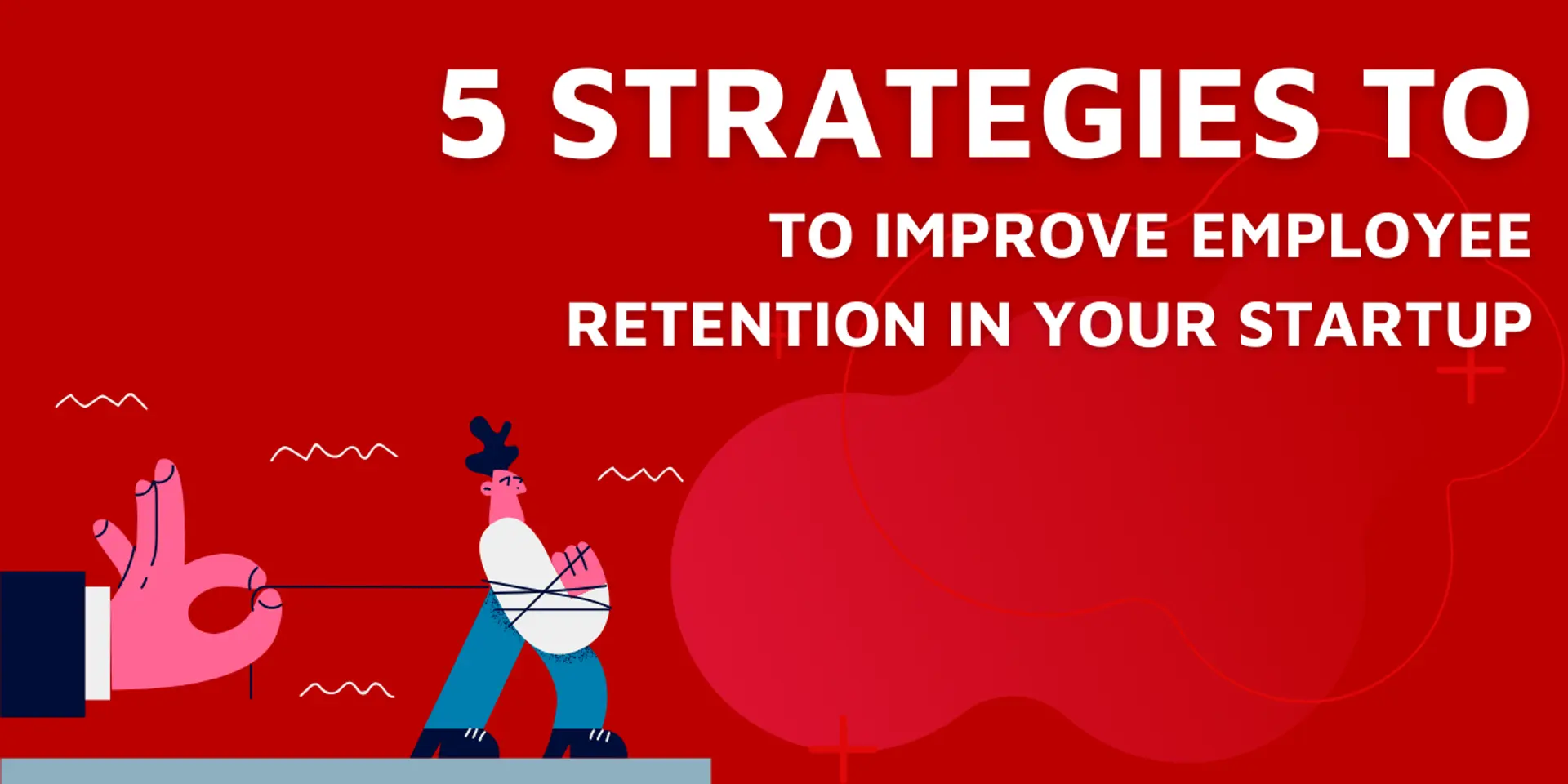

5 Ways To Improve Employee Retention In Your Startup
Struggling with a low employee retention rate in your organization? This article will give you 5 strategies to improve the retention rate significantly.
It goes without saying that companies seek to create and maintain a productive resource pool. This is particularly true for startups. The resources' skill set and hard effort determine the success of your project and the company at large. As a result, keeping employees on board for the long term is critical to maintaining profitability and company success.
Despite using the finest resource management techniques, startups frequently struggle to find the right resource retention approach. Employees have more expectations from their employer than just good wages. They desire a rewarding work environment that will allow them to advance and flourish in their careers.
Company culture and management where they feel valuable and motivated to work is another requirement.
Decision-makers must ensure an employee-centric culture while keeping the startup's long-term goals in mind. Simply hiking up candidates’ salaries will not solve a business’ employee retention problems. Because not only is it impractical, but it’s also not enough.
This article will provide you with helpful hints for developing a successful staff retention strategy and cultivating a good work atmosphere.
5 strategies for employee retention

1. Strategize to hire the right people
The best workers prefer to work with people that motivate them rather than those who depress them. Find strategies to recruit high-quality individuals who will fit your company's culture and stay for a long time. Employees, for example, expect to be sold on themselves, but they also want to be sold on your firm.
On your ‘careers’ page, what fascinating characteristics of your startup's culture can you highlight? Have you got great perks like annual hiking trips, onsite fitness centres, or generous leave options? Is your startup included among the "Best Places to Work" articles elsewhere on some media? Consider how you may effectively present your workplace for each candidate and job.
You may also consider gamifying the recruitment process, which is a wonderful approach to make it more enjoyable. Gamification's potential is endless, ranging from hackathons to digital games to fictitious VR scenarios. Those who participate in these games demonstrate an interest in working for your firm, and the winners are likely to be committed to the position they are applying for. Your new employees now know your workplace to be fun and engaging.
2. Take an interest in employees’ professional growth
Staff turnover is linked to a lack of investment in employee development, which is unsurprising. Supporting professional growth and ongoing learning, on the other hand, motivates and retains your staff.
Everyone becomes more creative, motivated, and productive at work when you educate your staff, establish clear career pathways, and implement coaching programmes. Consider making continuing education and certification programmes, as well as industry events and conferences, reimbursable.
You may also have internal knowledge sharing sessions in which workers teach one other new skills. Let managers let employees choose projects they are personally interested in. Allow your staff to choose how they want to develop and remember that encouraging growth in focused ways may be done without breaking the money.
3. Recognition is important
Employees that feel valued work more and stay longer in their jobs. Building a culture of recognition entails more than simply acknowledging people regularly. It necessitates regular, tangible and detailed acknowledgement.
To make such recognition a reality, your company should promote social recognition and monetary incentives, preferably through the use of a recognition platform that allows everyone to participate.
These platforms offer point-based incentive systems, which allow workers to earn and spend points for meaningful benefits. They also make it simple to express gratitude to anybody at your company, whether they are in the office or working remotely, because they may send words of gratitude to anyone at your company whenever and wherever it is most convenient for them.
4. Keep track of your employees’ mental well-being
Employee burnout is a big problem today throughout the world, and it's happening at an alarming rate: 76% of workers in the US are burned out at work. In India, since the pandemic, almost one-third of urban workers reported having increased burnout.
Symptoms of burnout include a loss of energy, unpleasant emotions, and feelings of isolation, which are common and difficult to overcome. Employees may get physically ill due to burnout, leaving them with no alternative but to leave your company.
Make employees' hours more flexible, and make sure their tasks and expectations are clear and reasonable. Teach managers to watch for symptoms of burnout and to reach out to employees who are experiencing difficulties. Encourage workers to make use of their vacation time and assist them in discovering hobbies that spark their interest. Set up exercise challenges, have a webinar on the significance of sleep, or invite a nutritionist to speak about good eating habits.
5. Make sure your culture complements your employees
Last but not the least, the importance of culture in recruiting and keeping great people cannot be overstated.
According to Glassdoor, 77% of workers evaluate a business's culture before applying. According to the Associated Press, over half of employees would quit their present job for a lower-paying position at a firm with a better culture. Building a strong corporate culture will strengthen current employee connections, improve customer service, and attract top talent.
Creating a culture that stands out entails recognizing employees who live out your company's principles daily. These principles should be important to all employees and presented to allow them to internalize and comprehend them. Remember, a candidate whose personality and ideals make them good for another business might not make them a good candidate for yours.
Make a connection between your company's aims and your goods and services, and explain how your purpose affects how your workers interact with partners, customers, and vendors.
As a startup, you might be revising your core principles or seeking to improve corporate alignment. While doing this, enlist the input of your staff. After all, they are constantly exposed to your business culture and have the background necessary to develop significant values.
The bottom line of workplace satisfaction
Money does, without a doubt, keep people employed, but it isn't the only method to do so. In reality, it's sometimes a band-aid remedy to a more serious injury.
Anyone who has ever accepted a counteroffer may attest that they only regretted their decision later.
Employees want to be acknowledged, they want to be able to learn new things, and they want to know that there is an opportunity for them to advance within their present company. And when they realize they won't be able to obtain these things in their current position, they search for work elsewhere.
These 5 strategies will help you tackle this situation much more efficiently. However, most experts agree that the best way to find out why your employees keep leaving is simply by asking them.
Communicate with your employees, seeking their feedback about how they are managed and how to improve on it. A clear, honest conversation about sensitive topics like this will build trust, and your workers will thank you for it. As an entrepreneur looking for fresh and dynamic talent to grow your startup, you will need your workers’ trust.







